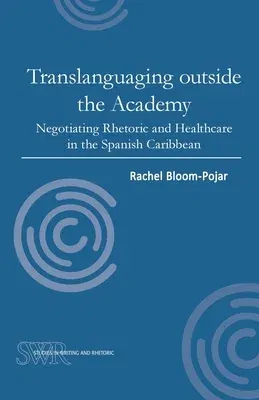Rachel Bloom-Pojar
(Author)Translanguaging Outside the Academy: Negotiating Rhetoric and Healthcare in the Spanish CaribbeanPaperback, 15 March 2018

Qty
1
Turbo
Ships in 2 - 3 days
In Stock
Free Delivery
Cash on Delivery
15 Days
Free Returns
Secure Checkout

Part of Series
Studies in Writing and Rhetoric
Print Length
157 pages
Language
English
Publisher
National Council of Teachers of English (Ncte)
Date Published
15 Mar 2018
ISBN-10
0814139922
ISBN-13
9780814139929
Description
Product Details
Author:
Book Format:
Paperback
Country of Origin:
US
Date Published:
15 March 2018
Dimensions:
13.97 x
21.08 x
1.27 cm
ISBN-10:
0814139922
ISBN-13:
9780814139929
Language:
English
Pages:
157
Weight:
217.72 gm